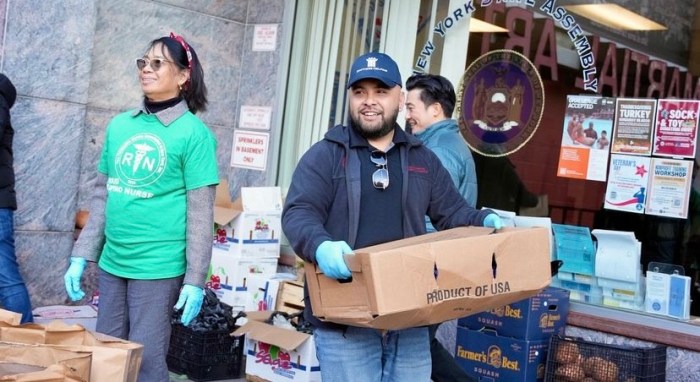By Bob Friedrich
The legislative redistricting fiasco reminded me of many things that are wrong with politics today, so I compiled my top five list of “what is wrong with this picture.”
1. Government-issued photo IDs are required to purchase allergy medicine, but not to vote?
At a recent West Cunningham Park Civic Association meeting, I asked state Assemblyman and congressional candidate Rory Lancman (D-Fresh Meadows) if he would support requiring voter photo IDs in light of documented cases of voter fraud.
An emphatic no was his response, citing “disenfranchisement” and “discrimination against the poor and people of color.”
“Even if the $10 fee for a DMV-issued non-driver photo ID were waived?” I asked.
“No,” he said again.
For more than a decade, photo IDs have been required to enter most city buildings, including the Assembly’s city office, and that requirement applies to everyone including the poor and “people of color.” And just this week I had to show photo ID at Walgreens to buy Allegra-D, my allergy medicine.
But somehow requiring photo ID to vote is wrong?
2. Political theater or award ceremony?
Cheap political stunts to garner free advertising and public relations are often disguised as “award ceremonies,” where politicians bestow awards on each other.
In a recent example of this, City Councilwoman Karen Koslowitz (D-Middle Village) presented fellow Councilman Peter Koo (D-Flushing) with a Person of the Year Award. These ceremonies create the appearance that great achievements are being rewarded when in reality they are nothing more than political stunts to attract media attention in the run-up to elections.
And are taxpayers once again on the hook for paying for these self-serving shindigs?
3. Two sets of rules: one for politicians and one for the general public?
City Comptroller John Liu and former Comptroller Bill Thompson owe the city more than $1 million in penalties for illegally posting thousands of campaign signs on city property. Since 2010, they have refused to pay up.
Ordinary scofflaws whose lesser infractions of failing to feed the meter on time have no choice but to pay up or see their vehicles confiscated.
4. No bonuses for outstanding teachers but yes to bonuses for chronically underperforming ones
Sure, the United Federation of Teacher’s concern for children’s education is genuine, but its No. 1 concern has always been to its members and their job security. The mayor has tried for years to introduce monetary incentives to reward high-performing teachers and replace chronically deficient ones.
UFT President Michael Mulgrew has resisted these efforts. In a last-ditch effort to rid the system of chronically underperforming teachers, city Schools Chancellor Dennis Wolcott floated a plan to offer large bonuses to induce underachievers to leave the system, to which Mulgrew gave a thumbs up.
They give bonus incentives for under-performance while deny the same for exceptional performance.
5. NYPD’s stop-and-frisk program is a legitimate topic for debate, but that debate must be based on facts and not rhetoric
Case in point: At a recent candidates’ forum, Lancman, when asked about his strong opposition to stop-and-frisk, said, “I have great questions about stop-and-frisk policies. Let me surprise nobody in this room — I’ve never been stopped and frisked. I wonder why that is?”
Could it be for the same reason that 7.5 million other New Yorkers of all ethnicities have also not been stopped and frisked by the police, like lack of probable cause? Insinuations of NYPD impropriety posed as questions are rhetorical antics that denigrate the NYPD and do not advance sensible debate.
All New Yorkers should devise their own top five what is wrong with this picture list and use it on Election Day to right those wrongs.
Bob Friedrich is a civic leader and president of the Glen Oaks Village co-op.



































